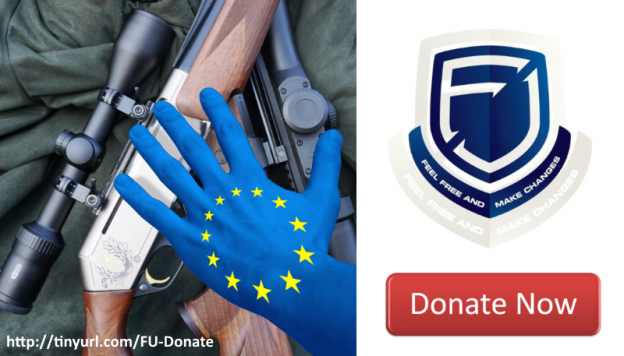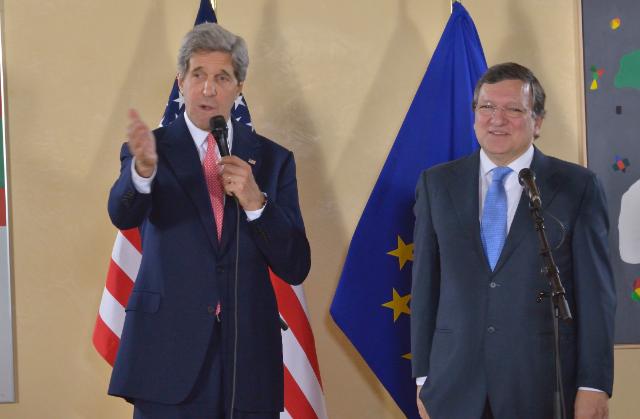For a peace force in Syria. We must not be afraid of Islamists (PM Qatar)

(BRUSSELS2) The room of the Foreign Affairs Committee, full on the arrival of the Prince of Qatar, has been emptied of a good part of its deputies who left to join other activities, the vote on the reports having been completed. Damage ! They missed the visit of Sheikh Hamad Bin Jassem Bin Jabor al-Thani, Prime Minister and Foreign Minister of Qatar. This was the occasion for a real strategic course on the Arab revolutions, democracy and Islamism. The Prime Minister giving his opinion on the situation in Syria, Iran or Palestine. The observers from the embassies were not mistaken, the benches usually reserved for the embassies were full. On numerous occasions, he insisted on the Arab League, the need for regional cooperation or finding regional solutions to problems in the region.
The people are right, governments must change
The first care of the Qatari Prime Minister was to plead a change of attitude of the Arab leaders first. " Real reforms are needed. Denying reality is not a solution. The leaders (of the Arab world) must adopt an active attitude of dialogue, establish a new social contract between State and society. History teaches us that it is useless to oppose the people. he explained in an introductory remark, willingly offensive, evoking the “ pit which can deepen between leaders and citizens, the demographic challenge, the problem of unemployment, a real time bomb ". " It is no longer possible to keep Arab society sheltered from the knowledge society, from the networks ". Some " governments have remained blind and deaf to (the demand for) change for too long he declares.
Islamist parties are legitimate when elected
More generally, the prince did not hesitate to defend the Islamists. " The Islamists should not be considered like that. We know that certain parties have not been recognized in Europe – in Algeria, in Palestine… But this is a mistake according to him. " We must not be afraid of Islamist parties per se. We believe that all parties, all factions elected by population should be respected. And this also applies to Islamist regimes. The leaders chosen in Tunisia, Egypt, Libya must be respected. It is up to the people to decide whether to give or take away power from these parties. (...) If it is necessary to choose between the mode and the population, it is the population which must have priority.” And to clarify in passing, in response to a question: “I am an Islamist and I follow the path of the Salafe who are our ancestors. It is not a terrorist organization. There is confusion on this point. »
The active role of Qatar
He acknowledged that since the start of the Arab revolutions, Qatar has had a “ active role » “to avoid negative fallout as much as possible”, especially in Yemen. The way in which the crisis in Yemen was resolved, with the active involvement of the Gulf Cooperation Council " could be a model for the resolution of the crisis in Syria “, he explains. But he denied that his country has vested interests in one country or another - "Qatar is a (sufficiently) rich country" - or that it has a hidden agenda in Syria. OUR " only interest is the protection of the Syrian people and finding a solution to break this impasse. “We want people to be able to choose their leaders democratically “, he assured.
Syria: enough is enough! We need a peacekeeping force
Regarding Syria, the tone was unequivocal. "I want to say to the Syrian regime: 'Enough! Do what the Syrian people want. Killing the citizens will not be the solution. It's time to accept the demands of the Arab League. And the prince to plead, again, on the “need to send troops from the United Nations and Arab countries together. " The goal is " to end the bloodshed and come to a final decision of what the people want, democratic change ". He denied wanting choose the military option, we are not in favor of it ". But " All our attempts so far have been unsuccessful. The Syrian government sought to buy time and used force. »
He also warned against the temptation to rewrite history by rejecting the version of the Syrian regime. THE " the beginnings of the protests were peaceful. It was then that there was repression. (...) The population today is tempted by violence. Because they feel that their message is not heard in Europe. » The argument of the power of minority protection is, in his view, a false argument. " The opposition is ready and committed to respecting minorities ". As for the question about a possible Islamist tendency, pro Al Qaeda, in Syria, “This should not be a reason to (abandon) the population. »
Iranian nuclear: a solution within the regional framework
Regarding Iranian nuclear power, he was very cautious. " we want to resolve issues diplomatically. Iran is a major country in the region which plays a fundamental role. We agree with a nuclear program provided that it follows civilian ends. If not, we will have to make a decision. We do not want this program to encourage an arms race in the region. And if there is a need for a solution, we must find (this) solution in the region »
No democratic solution in the Arab world without a solution in the Middle East
Finally, he wanted to point out the problem of Palestine. Until the Palestinian question and the conflict in the Middle East are resolved”, we cannot achieve the expected result. " We must return to the borders of 1967, freeze colonization. Israel must understand that the Arab world is changing, and that we must take into account our populations ". It's a " real bomb (which) can burst. » he warned. “We have to work for a peaceful situation. This will not automatically be what Israel wants. But it will be decided according to the international situation. »


